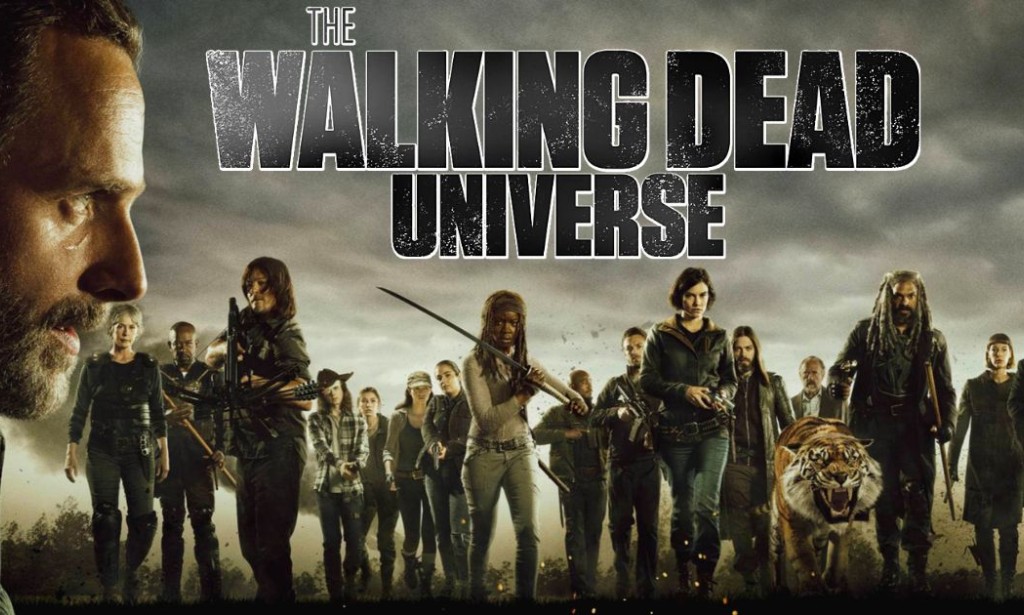"Surviving the Apocalypse: The Evolution of The Walking Dead Universe"
Introduction:
In the realm of post-apocalyptic storytelling, The Walking Dead Universe stands as a monolith, weaving a tale of survival, humanity, and the unrelenting pursuit of hope in the face of a zombie apocalypse. This exploration delves into the rich history and development of The Walking Dead Universe, spanning across television, comics, and beyond.
1. The Birth of The Walking Dead (2003-2010):
The journey began in 2003 when writer Robert Kirkman and artist Tony Moore introduced The Walking Dead as a comic book series. The narrative unfolded in a world overrun by the undead, focusing not just on the horror of zombies but the intricate dynamics of human survival. The series quickly gained acclaim for its character-driven storytelling, moral complexities, and unflinching portrayal of a shattered society.
2. Television Triumph (2010-Present):
In 2010, The Walking Dead made its leap from the pages of the comic book to the small screen. Developed by Frank Darabont, the television series brought the post-apocalyptic world to life, introducing characters like Rick Grimes, Daryl Dixon, and Michonne to a global audience. The show became a cultural phenomenon, amassing a dedicated fan base drawn to its suspenseful storytelling and well-developed characters.
The success of The Walking Dead prompted the creation of a spin-off series, starting with Fear the Walking Dead in 2015. This companion series explored the early days of the outbreak on the West Coast, providing a different perspective on the unfolding apocalypse.
3. Expanding the Universe (2016-Present):
The Walking Dead Universe continued to expand with the introduction of additional series, each offering a unique lens into the post-apocalyptic world. The Walking Dead: World Beyond, which premiered in 2020, followed a group of young survivors navigating a world filled with both the undead and other human threats. This series aimed to appeal to a younger audience while maintaining the franchise's signature tension and moral dilemmas.
4. Crossover Events and Specials (2017-Present):
The Walking Dead Universe has not been limited to episodic series alone. AMC introduced crossover events and specials, bridging storylines between different series. Characters from The Walking Dead appeared in Fear the Walking Dead, and an upcoming Daryl and Carol spin-off promises to further interconnect the narrative threads.
Specials, like The Walking Dead: Red Machete, focused on specific characters or story elements, expanding the lore beyond the core series. These diversifications kept the audience engaged and invested in the broader universe.
5. The Comics as Source Material (2003-Present):
While the television series brought The Walking Dead to a broader audience, the source material – the comic book series – continued to be the creative wellspring. The comic series ran for 193 issues, concluding in 2019. Kirkman's decision to conclude the comics, surprising both readers and the industry, demonstrated a commitment to crafting a complete narrative arc.
6. Impact on Pop Culture (2010s-Present):
The Walking Dead Universe has left an indelible mark on popular culture. Iconic characters, memorable quotes, and the eerie imagery of the undead have permeated mainstream consciousness. The series inspired countless parodies, references in other media, and even a plethora of merchandise, solidifying its place in the zeitgeist.
7. Challenges and Evolution (2010s-Present):
The Walking Dead Universe has not been without challenges. While the flagship series maintained a strong viewership for several seasons, there were periods of decline. The departure of key characters, creative differences, and the need to refresh narrative arcs presented hurdles that the creative team had to navigate.
To address these challenges, the universe embraced creative shifts, introducing new characters, exploring different regions, and experimenting with narrative timelines. The willingness to evolve and take risks has been instrumental in sustaining audience interest.
8. The Future of The Walking Dead Universe (2020s and Beyond):
The Walking Dead Universe shows no signs of slowing down. AMC has announced plans for additional spin-offs, including Tales of The Walking Dead, an anthology series exploring various characters and storylines. The Daryl and Carol spin-off, along with Rick Grimes' return in a trilogy of movies, promises to bring beloved characters back into the spotlight.
As The Walking Dead Universe enters its third decade, it faces the challenge of maintaining relevance while introducing fresh elements. The expansion into different genres, narrative structures, and character perspectives underscores a commitment to keeping the universe dynamic and engaging.
Conclusion:
The Walking Dead Universe stands as a testament to the enduring appeal of post-apocalyptic storytelling and the resilience of a franchise that evolves with its audience. From the inked pages of a comic book to the screens of millions worldwide, The Walking Dead has become synonymous with survival, resilience, and the complexities of human nature in the face of the undead.
As the universe continues to expand and explore new horizons, it remains a beacon for fans who have been on this harrowing journey since the first page of the comic or the opening scene of the television series. The Walking Dead Universe is not just about zombies; it's a reflection of the human condition, wrapped in the tattered fabric of a world forever changed by the apocalypse. Whether through comics, television, or beyond, the undead march on, leaving an indomitable footprint on the cultural landscape.



You must be logged in to post a comment.